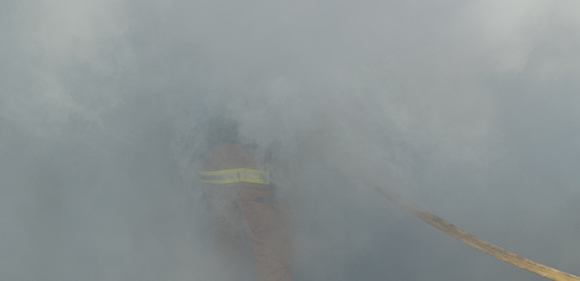But the lesson hit home for both of us--always pay attention to your surroundings. . .

NPS / Riley Caton
While staffing an ambulance one day at work, I was dispatched to a high-rise retirement complex, a common occurrence. After providing assistance to a resident on an upper-level floor, my partner and I started walking out of the apartment. Somehow, we walked right past the hallway to the front door and ended up in the kitchen. It took about three seconds for us to realize we missed the correct hallway and walked back, looking for the front door. Although this took less than a minute, we immediately realized the possible repercussions of what just happened. If this had happened during a fire and the apartment had been smoky, it would have been very easy for us to get completely turned around. The minute it took us to find the front door would have been significantly longer. With the number of rescues that would need to be made in such a building, we knew we would find ourselves crawling through these apartments in a fire, trying to move as fast as possible. Getting turned around could be a fatal mistake.
Years earlier, a firefighter at the same department was searching a high-rise building, just like the retirement complex, when he crawled into what he thought was an apartment. Instead, the opening was an elevator shaft. Fortunately the firefighter, though injured, survived the fall and eventually returned to work.
For a firefighter, getting turned around while walking through an apartment is a bit embarrassing, so we quickly decided to keep the incident to ourselves. But the lesson hit home for both of us--always pay attention to your surroundings and, every time you enter a building, use it as a learning experience; the next time you enter may be in near-zero visibility.
Last updated: December 13, 2016
